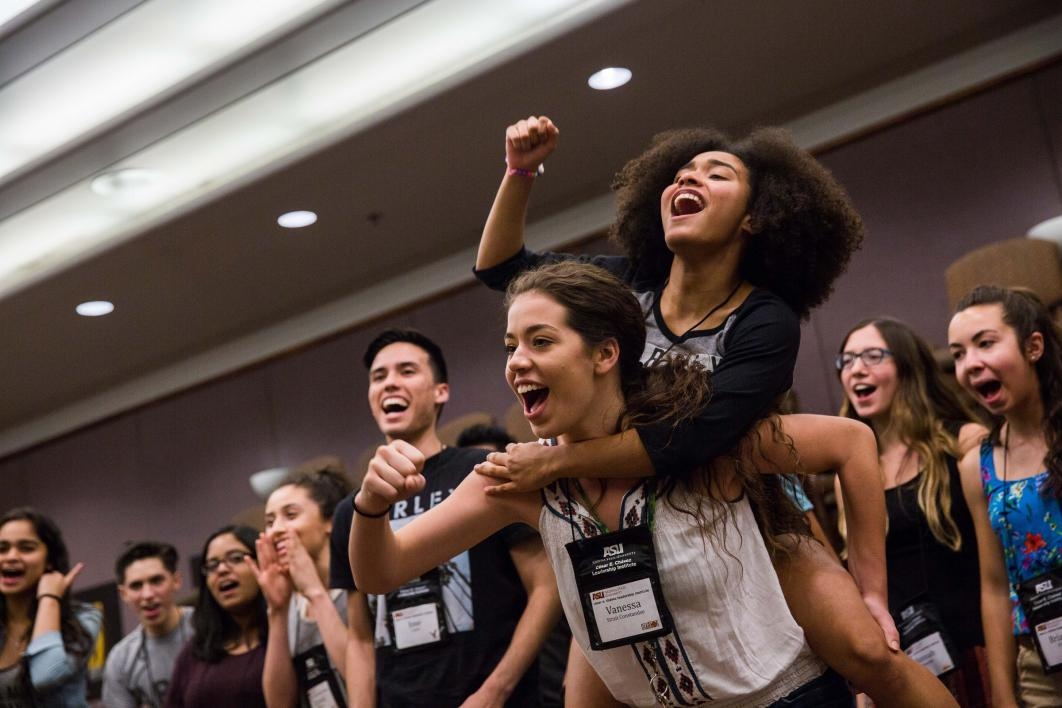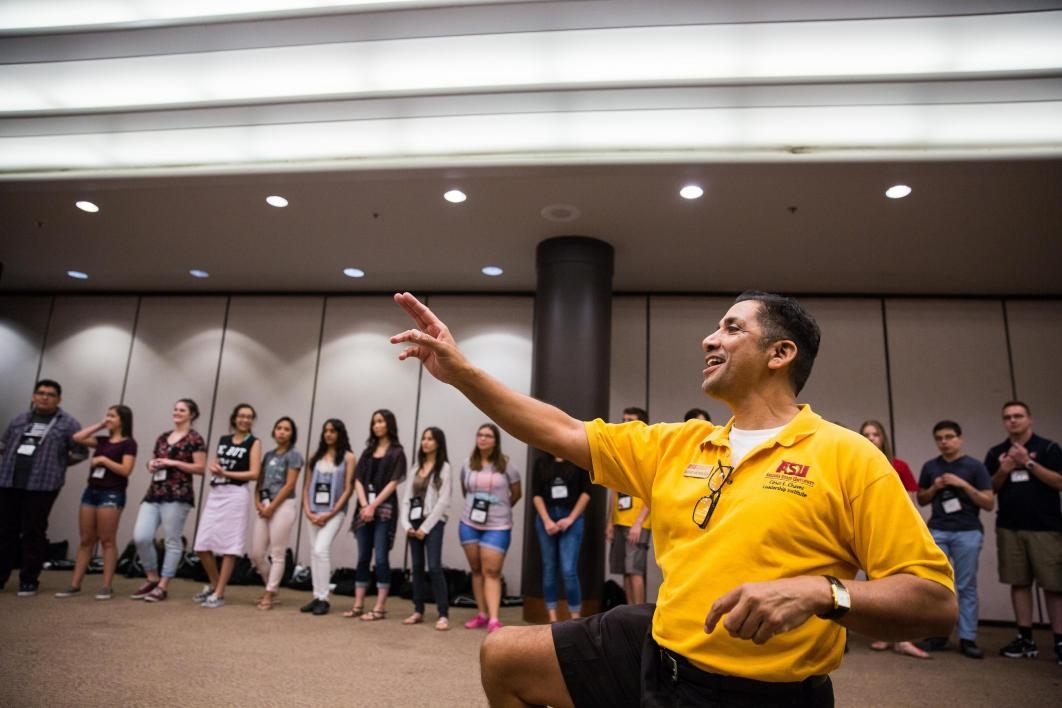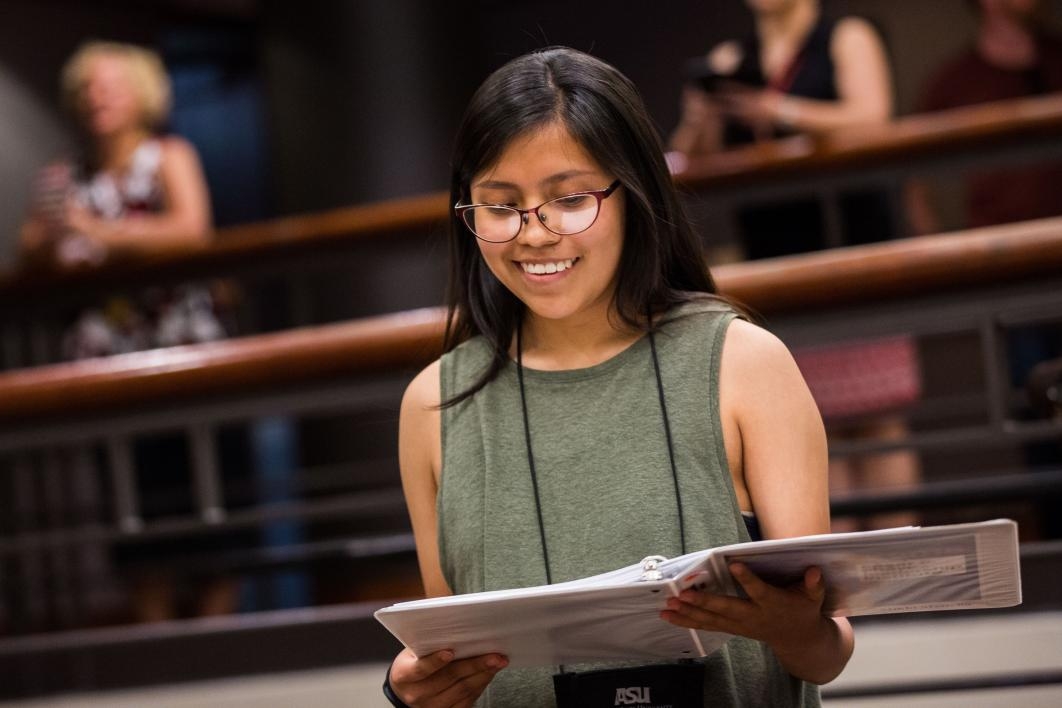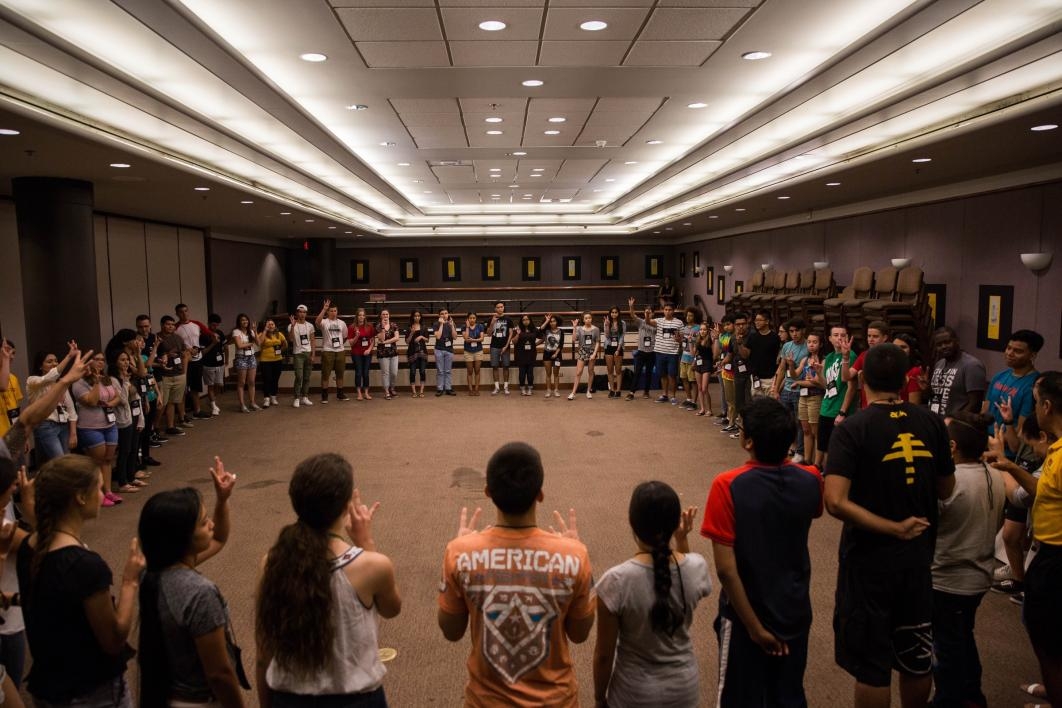Jose Julian Campos introduced himself while trying to make eye contact, speak up, use good body movements, avoid the word “like” and not let his voice rise up so his name sounded like a question.
It was a lot to remember.
Campos (pictured above) and 58 other high school students stood in a circle at the Memorial Union earlier this week, learning how to speak — and listen — in public. It was just one of the many skills that the teenagers are covering during the weeklong Cesar E. Chavez Leadership Institute at Arizona State University.
David Morales, a retired ASU staff member, works with the Chavez students every summer.
“Don’t be shy!” he told them. “We are familia! Speak up!”
On his second try, Campos nailed his introduction and the other students cheered.
A senior at Cibola High School in Yuma, Campos said he applied for the competitive camp “to get outside my comfort zone.” He’s part of the 21st group of delegates in the institute, named after Cesar Chavez, a labor activist and civil-rights leaders who was born in Yuma and died in 1993.
Rhonda Carrillo, assistant director for the Chavez Programs at ASU, said she works with high schools across the state to attract promising young people. Every year, about 60 students are chosen from among about 200 applicants to attend the all-expenses-paid week on ASU’s Tempe campus.
“We want kids who show leadership qualities and who are interested in going on to college but who might not have the advantages of other students who can afford to go to camps,” she said.
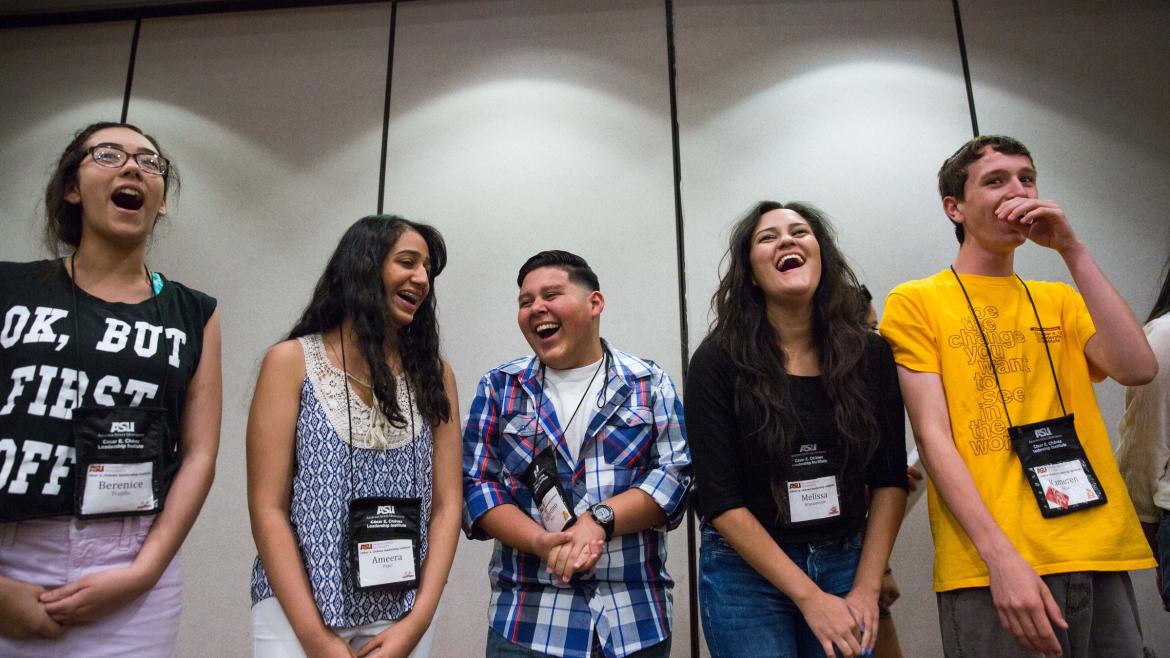
High schoolers participate in vocal exercises, holding an "Ahhh" as long as they can, during the Cesar E. Chavez Leadership Institute on Monday afternoon in Tempe.
Photo by Deanna Dent/ASU Now
This year’s class include students from Maricopa County as well as San Luis, Prescott and the Navajo Nation.
Mikki Metteba said she applied for the camp after seeing a poster in the office of her guidance counselor at Window Rock High School.
“I want to take advantage of all the opportunities I can,” said Metteba, who wants to become an environmental engineer and work on the reservation.
Carrillo said that in the first years, the camp-goers were all Latinos but now are more diverse. Learning and embracing their differences is one key to the week’s activities.
“The first thing we do is have a diversity workshop. We address it right up front, and it’s made a big difference since we added that. They really bond,” she said.
“They see they’re all here because they want to go to college, be good citizens and serve their communities. That’s what makes you the same, whether you have a farm-worker father or a family that earns six figures.”
The camp promotes three concepts — education, civic engagement and community service. The camp-goers spend a morning volunteering at St. Mary’s Food Bank, attend college-application and financial-aid workshops, meet business leaders and get career advice. They also learn how to become community advocates by holding a mock legislative session.
The students also learn about Chavez and his work for social justice, Carrillo said.
“We want them to take these things they learned, use them in their communities and make them a part of their lives.”
At the end of their public-speaking workshop, the teenagers shouted the CCLI chant: “Si, se puede! CCLI! Yes, we can!”
Top photo: Jose Julian Campos and other students cheer and chant during the Cesar E. Chavez Leadership Institute on Monday afternoon in the Memorial Union on ASU's Tempe campus. Photo by Deanna Dent/ASU Now
More Arts, humanities and education

ASU professor's project helps students learn complex topics
One of Arizona State University’s top professors is using her signature research project to improve how college students learn science, technology, engineering, math and medicine.Micki Chi, who is a…

Award-winning playwright shares her scriptwriting process with ASU students
Actions speak louder than words. That’s why award-winning playwright Y York is workshopping her latest play, "Becoming Awesome," with actors at Arizona State University this week. “I want…

Exceeding great expectations in downtown Mesa
Anyone visiting downtown Mesa over the past couple of years has a lot to rave about: The bevy of restaurants, unique local shops, entertainment venues and inviting spaces that beg for attention from…



